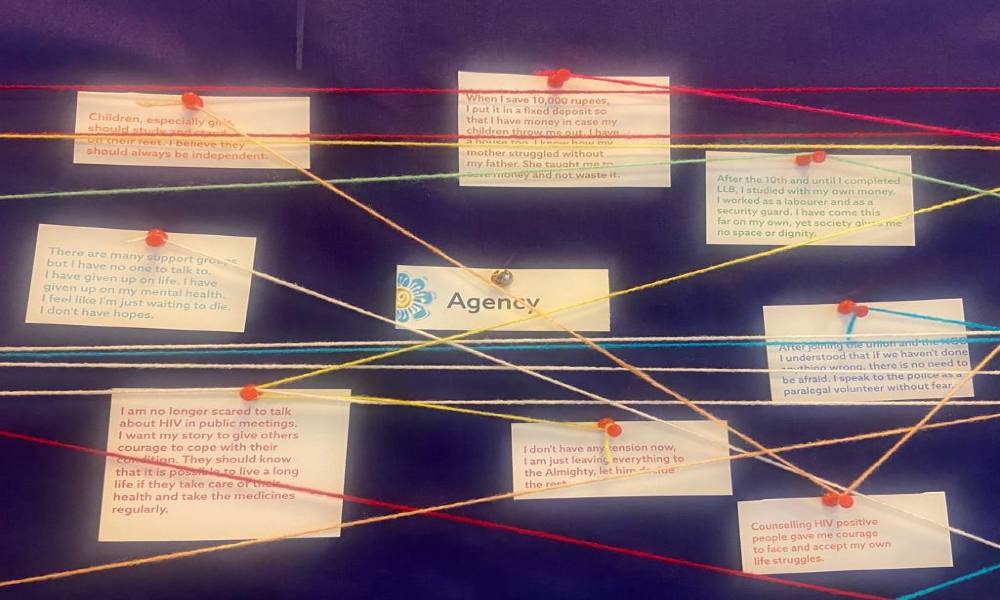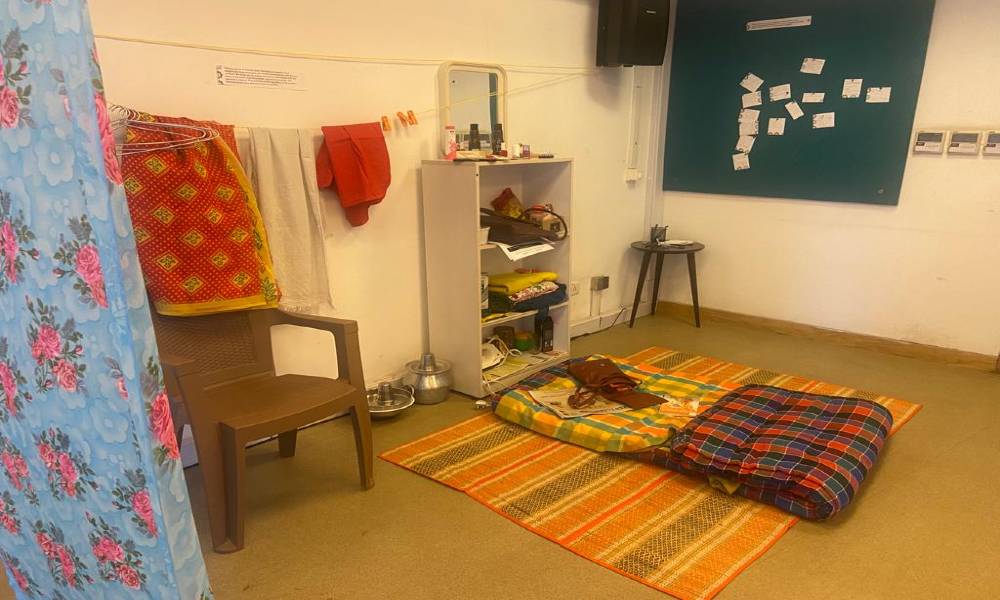Even NIMHANS is not looking at the problem seriously, claims a doctor.
The Indian Institute of Human Settlement’s (IIHS) research team for their exhibition on the mental well-being of Bengaluru’s sex workers found that there is a lack of data for psychological assessment for sex workers, especially male and transgender sex workers.
Experts say that it is crucial to have data for awareness programmes and improvements. The IIHS research team further found that male and transgender sex workers suffer more from mental health-related problems owing to isolation and lack of community among them.
Sofia Juliet Rajan, ex-journalist and a curator for the exhibition mentioned that the lack of data available for the psychological assessment of sex workers, in particular male and transgender sex workers, was a main concern that became the basis for their exhibition. “When we looked for mental health data for sex workers, we found nothing. There are reports for the physical and sexual impact of the industry on the workers, but for the psychological aspect there is nothing.”
Mental Health at the Margins, an exhibition which focuses on the mental health of sex workers in Bengaluru city projects the everyday psychology of sex workers in the city. With an emphasis on coping mechanisms and how this industry affects its workers, the IIHS researchers saw that male workers are more prone to societal withdrawal as they lack any community or a steady support system.
A NIMHANS official said that she is not aware of any work on mental health awareness of sex workers that has been undertaken by the institute. “I don’t think any such study has been done by NIMHANS or in association with NIMHANS. For sex workers, the mental health awareness is very little. The government takes more initiatives for their educational and social welfare schemes.” She concluded by saying that psychological assessment for sex workers, male or female, is an area that has not been looked at seriously by NIMHANS.
Payel Rai Chowdhury, Prof of Human Rights and Human Development, said that in terms of mental health for sex workers, the majority of the research work and evaluation has been done on women sex workers. “There isn’t a lot of data to begin with. Mental health gets neglected in most cases, and for sex workers, it is usually not even a priority. But for a broader perspective, we can find generic works on women workers. However, for male sex workers there is hardly any mental health-related work that has been done.” She added that because mental health is largely neglected in India, especially for men, male sex workers are more likely to suffer. “There needs to be more awareness about male and transgender workers as they are yet to build a community support system, unlike the women workers.”
Yashodara Udupa, IIHS staff and part of the curator team for the exhibition added that IIHS, through this exhibition and the research conducted for it, is considering publishing a report on the psychological well-being of sex workers since there is such lack of data and reports.
Dr. Shanmukh Kamble, a professor of Psychology, said that it is difficult to get data for sex workers because they are not comfortable being studied for data or reports. “From a psychological perspective, we need detailed evaluation and study of the subjects. Sex workers, because they are so protective and often secretive about their identity as sex workers, are not comfortable being under the spotlight or microscope like that. This is why it is not as easy to assess their psychological well-being as much as we’d like to.”
Male and transgender sex workers
The IIHS team further has noted that male and transgender sex workers suffer gravely from a lack of community and camaraderie. Owing to a smaller demography as well as competition within that demography, male sex workers struggle more to access mental health, and suffer from withdrawal from society more than women sex workers.
Yashodara Udupa, IIHS staff and one of the curator team members for the exhibition said that women sex workers in Bengaluru, though face discrimination, have somewhat better access to mental health than male workers. “It is different when it comes to women and men sex workers. Women sex workers have their union, a strong union, community and other support systems are available. But for male and transgender sex workers, that sort of access is still out of reach.”
Sofia Juliet Rajan, said, “The women have deep friendships and a sense of belonging to a community that the men and the transgenders did not have at all. Another male sex worker we worked with wants partners, friends, but has lost faith because of discrimination and prejudice.”
Yashodara further said that for male and transgender sex workers, there are very few social outlets, if at all. “It is a very isolating situation for them. Their friends are not only judgemental but turn against them very quickly if they know they are sex workers.”
Rajan said that even with any legal help, male and transgender sex workers are cut off from the system. “Policemen don’t believe that men and transgenders can be raped, their complaints are not filed. Their problems are not heard. It all bottles up after a point and unlike the women, most of whom have confidants, the men and transgenders have no emotional outlet.”
Though both of them agreed that psychological impact of the sex work industry cannot be compared for men or women; they also could not deny the evident isolation men and transgender sex workers face despite working with NGOs and other welfare organizations.
“For the women, the NGOs and the associations they work with become their friends and their community in many cases. But we saw that for the men and transgenders, even transwomen, the people they work with are simply their co-workers.”
Rajan said that their aim with the exhibition is to create a policy-shift towards mental health. “We want to see a change with mental health accessibility – where it is no longer for the upper and middle classes. We want the marginal communities – like sex workers, and the men and transgender sex workers within the sex work community- to be able to access mental health just as much as anybody else.” She said that more attention needs to be paid to public health infrastructure.









